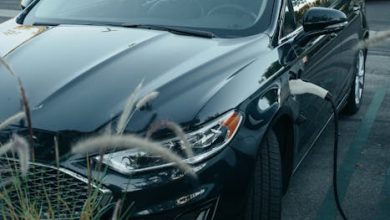
Are you planning a trip and considering renting a car? If you’re an Allstate insurance policyholder, it’s essential to understand whether your coverage extends to rental cars. Rental car coverage can provide peace of mind during your travels, protecting you from unexpected expenses in case of accidents or damage to the rental vehicle. In this article, we will explore what your Allstate insurance policy typically covers when it comes to rental cars and discuss additional coverage options available to you. So, let’s dive in and find out if your Allstate insurance covers rental cars!
Understanding Your Allstate Insurance Policy
Before we delve into the specifics of rental car coverage, it’s crucial to have a clear understanding of your existing Allstate insurance policy. Allstate offers various types of policies, including auto insurance, homeowners insurance, renters insurance, and more. Each policy provides coverage for different situations, and it’s essential to know what your policy encompasses.
Most Allstate auto insurance policies include coverage for liability, collision, and comprehensive damage. Liability coverage protects you in case you damage someone else’s property or injure another person in an accident. Collision coverage helps cover repairs to your vehicle in case of a collision, regardless of who is at fault. Comprehensive coverage protects your vehicle from damage caused by factors such as theft, vandalism, or natural disasters.
While these types of coverage are standard in most Allstate auto insurance policies, it’s essential to review your specific policy documents to ensure you understand the exact details of your coverage. Keep in mind that there may be variations in coverage depending on factors such as your location, policy type, and any additional coverage options you have chosen.
Coverage for Rental Cars
Now that we have a basic understanding of Allstate insurance policies, let’s explore whether Allstate typically covers rental cars. The answer can vary depending on the circumstances, but in most cases, Allstate insurance provides some level of coverage for rental cars.
When you rent a car for personal use, your Allstate auto insurance policy usually extends liability coverage to the rental vehicle. This means that if you cause an accident while driving the rental car, your Allstate insurance will cover the damages or injuries caused to others involved in the accident. Liability coverage is essential to protect yourself from potentially significant financial liabilities if you’re found at fault in an accident.
However, it’s important to note that your Allstate policy’s collision and comprehensive coverage typically do not extend to rental cars. This means that if the rental car gets damaged in an accident or due to other factors such as theft or vandalism, your Allstate insurance policy may not cover the repairs or replacement costs.
To better understand your specific coverage for rental cars, it’s crucial to review your policy documents or contact your local Allstate agent. They can provide you with detailed information about the extent of coverage for rental cars under your specific policy.
Additional Rental Car Coverage Options
If your Allstate insurance policy does not provide comprehensive or collision coverage for rental cars, you have the option to purchase additional coverage. Allstate offers a supplementary insurance product called Rental Reimbursement coverage, which can be added to your existing policy.
Rental Reimbursement coverage is designed to provide financial protection in case you need to rent a temporary replacement vehicle after an accident. This coverage can help cover the cost of renting a car, typically up to a certain daily limit, while your vehicle is being repaired or replaced. It’s important to note that Rental Reimbursement coverage is optional and comes with an additional premium cost.
Adding Rental Reimbursement coverage to your Allstate insurance policy can provide peace of mind, especially when you rely heavily on your vehicle for daily commuting or have a busy schedule that doesn’t allow for lengthy disruptions in transportation. With this coverage, you won’t have to worry about the expenses of renting a car while yours is unavailable.
Steps to Take Before Renting a Car
If you plan on renting a car and want to ensure coverage under your Allstate insurance policy, there are a few steps you should take before finalizing the rental agreement. By following these steps, you can help ensure that any potential claims related to the rental car are handled smoothly.
-
Review your policy documents: Carefully read through your Allstate insurance policy to understand the extent of your coverage for rental cars. Take note of any limitations or specific requirements mentioned in the policy.
-
Contact your Allstate agent: If you have any questions or concerns about your rental car coverage, reach out to your local Allstate agent. They can provide you with the necessary information and guide you through the process.
-
Check rental car requirements: Rental car companies often have specific requirements for insurance coverage. Make sure your Allstate insurance meets the minimum requirements set by the rental car agency.
-
Document damage before driving: Before driving the rental car, inspect it thoroughly and document any existing damages. Take photos or videos and inform the rental car company of any pre-existing damage to avoid being held responsible for it.
-
Decline unnecessary insurance at the counter: Rental car companies may offer you additional insurance coverage at the counter. If your Allstate insurance adequately covers you, it’s best to decline these offers to avoid unnecessary expenses.
By following these steps, you can ensure that you have taken the necessary precautions and have a clear understanding of your rental car coverage under your Allstate insurance policy.
What to Do in Case of an Accident
Accidents can happen anytime, anywhere, regardless of whether you’re driving your own vehicle or a rental car. If you find yourself in an accident while driving a rental car, there are specific steps you should follow to ensure your safety and protect your rights as an Allstate policyholder.
-
Ensure your safety: First and foremost, make sure you and any passengers are safe. If anyone requires medical attention, call emergency services immediately.
-
Report the accident: Contact the local authorities to report the accident, regardless of the severity. It’s important to have an official record of the incident.
-
Exchange information: Exchange contact and insurance information with the other party involved in the accident. This includes name, address, phone number, and insurance details.
-
Document the scene: Take photos or videos of the accident scene, including the vehicles involved, damages, and any relevant road conditions. This documentation can help support your insurance claim.
-
Contact Allstate: Report the accident to your Allstate insurance as soon as possible. They will guide you through the claims process and provide assistance in handling the situation.
-
Follow the claims process: Work closely with your Allstate claims representative to provide the necessary information and documentation to support your claim. They will guide you through the process and help determine the coverage available for your rental car accident.
By following these steps, you can ensure that the necessary actions are taken to protect yourself and navigate the claims process effectively if you are involved in an accident while driving a rental car.
Alternatives to Allstate Coverage
While Allstate insurance typically provides coverage for rental cars, there may be situations where your policy does not apply or you require coverage beyond what Allstate offers. In such cases, there are alternative options available to ensure that you have adequate insurance coverage for your rental car.
-
Credit card coverage: Some credit card companies offer rental car coverage as a benefit when you use their card to rent the vehicle. Check with your credit card provider to see if you are eligible for this coverage.
-
Third-party insurance: There are independent insurance providers that specialize in rental car insurance. These companies offer policies specifically tailored for rental cars and provide coverage for a wide range of situations.
-
Rental car company coverage: Rental car companies often offer their own insurance options, such as Collision Damage Waiver (CDW) or Loss Damage Waiver (LDW). While these options can be more expensive, they provide comprehensive coverage and eliminate the need to involve your personal insurance policy.
Before opting for any alternative insurance option, it’s important to compare the coverage, costs, and limitations associated with each choice. Consider your specific needs and the duration of your rental to make an informed decision about the best insurance option for your rental car.
Conclusion
Understanding the coverage provided by your Allstate insurance policy for rental cars is crucial when planning your next trip. While Allstate typically extends liability coverage to rental cars, it’s important to review your policy documents and consider additional coverage options to ensure comprehensive protection.
By following the steps outlined in this article, you can be proactive in securing coverage for rental cars under your Allstate insurance policy. Remember to document any damages, decline unnecessary insurance at the rental car counter, and follow the appropriate steps in case of an accident.
If Allstate coverage does not meet your needs or is unavailable, alternative insurance options such as credit card coverage or third-party providers can ensure you have the necessary protection while driving a rental car.
Take the time to review your Allstate insurance policy and explore the rental car coverage options available to you. By doing so, you can travel with confidence, knowing that you are adequately protected in case of any unforeseen events during your rental car experience.



